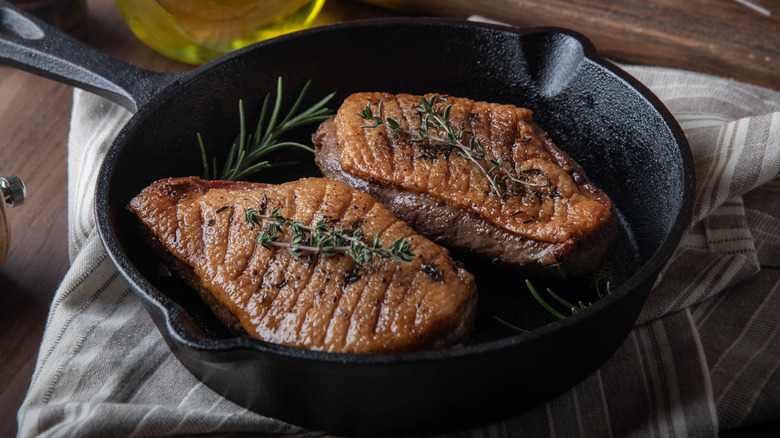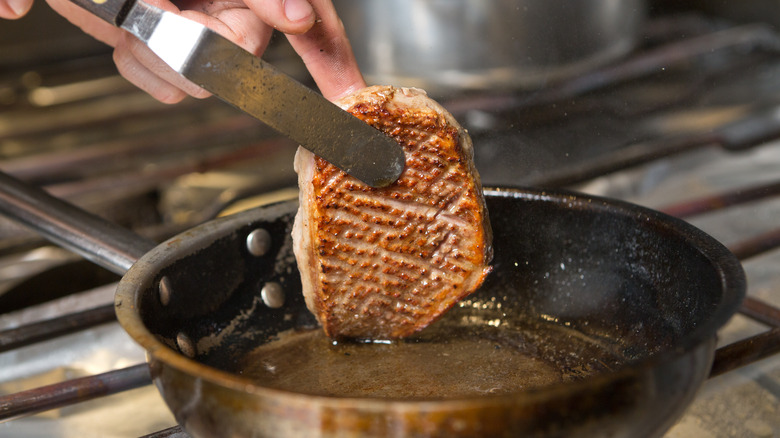Why You Should Always Refrigerate Duck Breast Before Cooking
Of the poultry selection available to us, duck breast seems to be one of the more refined options. Peking duck is a fancier menu item you'd find at a Chinese restaurant, with its characteristic amber-colored shine encasing tender meat; confit de canard is a classic French dish where the whole duck is slow-cooked in its own fat. Duck is a delicacy, and it requires a bit more time and attention than your average chicken breast to be brought to its fullest potential.
In fact, when you compare it to other poultry options like chicken and turkey, you'll find that duck has rightfully earned its status as a delicacy. Chef's Pencil describes duck as having a fattier and richer composition, making it more comparable to red meat than white meat. The other stark difference between these two breasts is the fat content, with duck providing 68% more fat than chicken (via Foodstruct). The appeal of duck breast is indeed the thick layer of subcutaneous fat it holds, which is fat between its skin and its muscle, per Salt Pepper Skillet. But as much as this nice layer of fat sounds enticing, it must be treated with the utmost care, especially if you plan to pan-sear your duck. Pan-searing your duck breast might be much simpler than making Peking duck or duck confit at home, but it does require a bit of patience and some space in your fridge.
Drying your duck breast
When you hear the term "dry-aging," you probably think it is something that seasoned home cooks do to their ribeye steaks. While this is true, it is also an essential part of preparing a nice pan-seared duck breast. MasterClass suggests that you "air-dry" your duck breasts for about three days in the refrigerator to remove extra moisture, which is a similar concept to dry-aging but less precise with temperatures. Sure, pan-searing sounds like it should be a quick and easy job, but duck breast is composed of a complex layer of fats that must be dealt with before you start cooking. What really separates duck breast from a chicken breast is the delectable crispy layer it forms when you fry it. Bella Bella Gourmet shares that drying the duck in a refrigerator allows the skin to crisp up while you cook it.
Not only does drying it in the refrigerator help you achieve a crispy duck skin, but it also prompts the breakdown of the muscle fibers, which imbibe the duck breast with deeper flavor. Of course, drying your duck breast before you cook it is only half the battle. Salt Pepper Skillet states that you should cook the breast on the fatty skin side for almost 90% of your cooking time so that you could render off the subcutaneous fat while developing that golden skin. Then, finish cooking off the delicate meat for only a few more minutes after flipping it. The key here is to try to find your perfect medium, as undercooked duck is too chewy and overcooked duck is dry.

